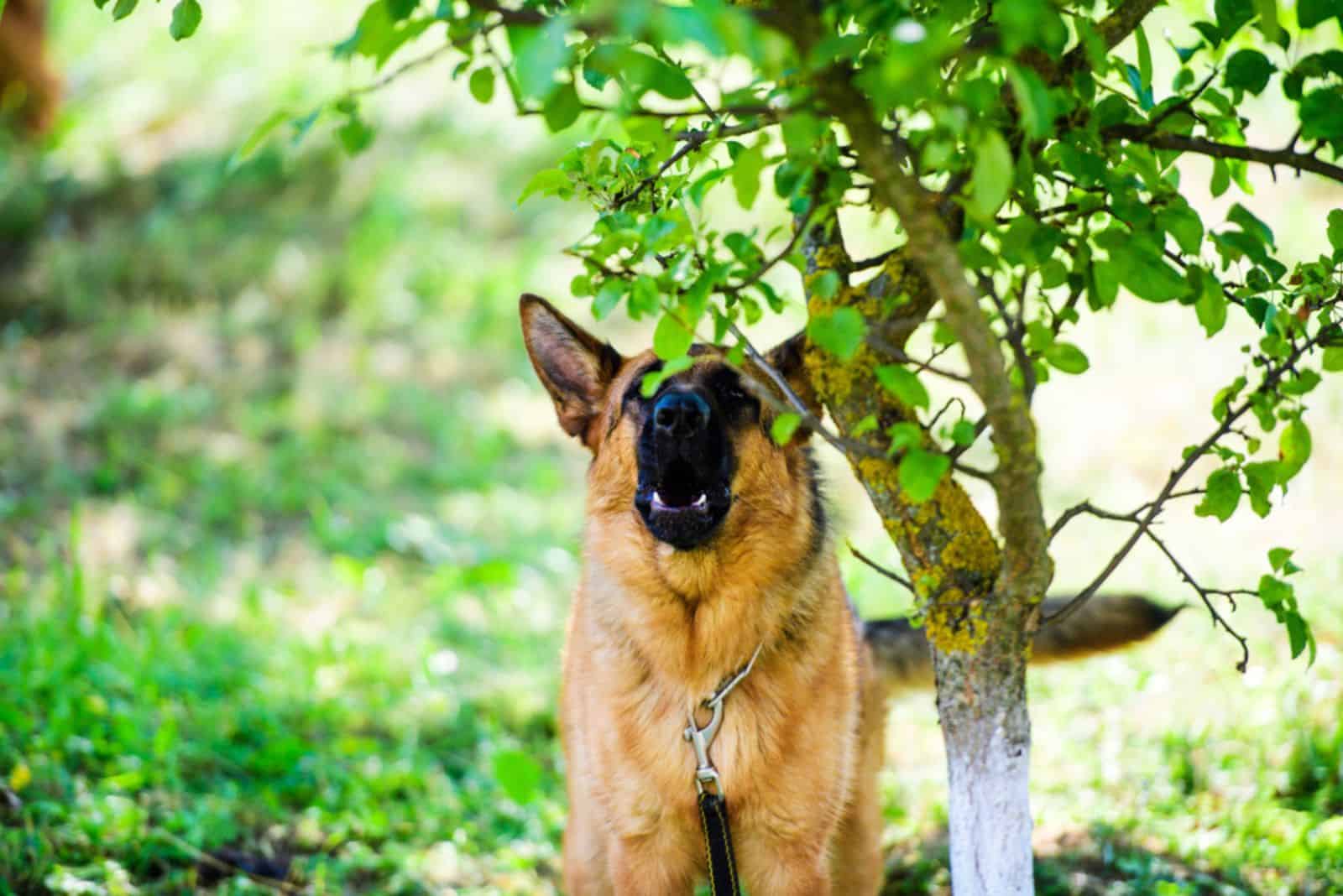When it comes to disciplining your dog, it can be hard to determine whether the punishment fits the crime, so one of the questions that owners ask is should you punish German Shepherds For Growling?
The answer to the question of should you punish your German Shepherd for growling, in my opinion, is yes, but only for certain types of growling.
The ones directed to you and other family members and loved ones to be exact, but you also need to make sure you’re teaching him how to behave around strangers as that only needs a little bit of tempering rather than punishment.
For, you see, GSDs are very territorial and protective dogs and they’ll often react in such a manner toward those that they don’t trust or those who are invading their personal space.
This reaction of theirs is necessary for the territorial and protection aspects as it’s who they fundamentally are, guard dogs, but sometimes it can be a bit much, which is why knowing how to properly temper it without losing it fully is a good skill to have.
If you want to see what the proper punishment for this would be, be sure to read on.
Should You Punish Your German Shepherd For Growling: Knowing The Fundamentals
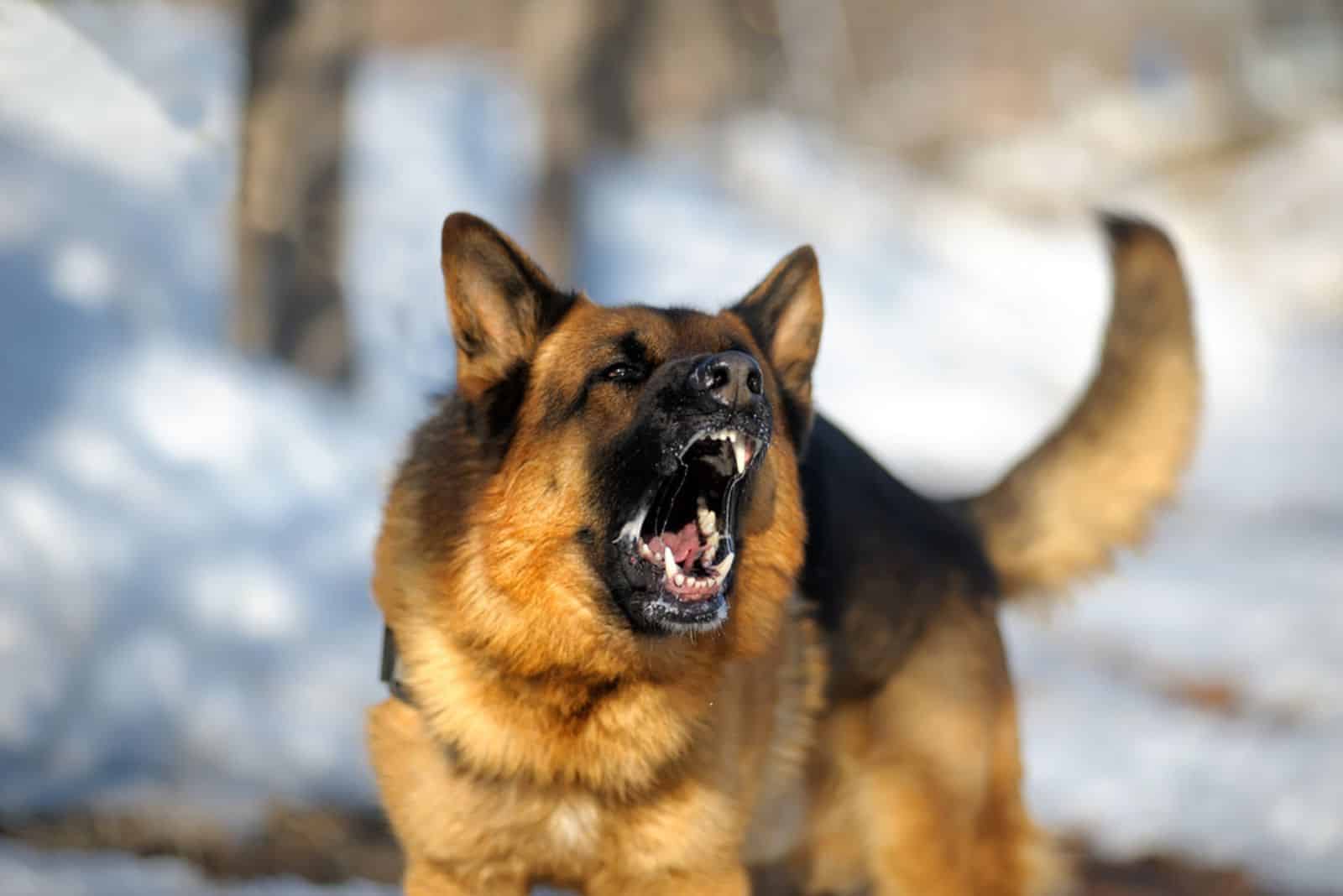
Before we move over to the punishment, one needs to understand the temperament of the dog they’re dealing with, as the GSD is a slightly special breed.
It can also help determine the exact reason for your dog’s growling and whether or not action is required.
The German Shepherd’s Temperament
German Shepherds make for stellar guard dogs, it’s one of the main reasons people buy them for other than them being one of the more popular dog breeds out there.
Aside from that, they’re also a solid shepherd and working dog given their exceptional stamina and high activity levels.
They’re also lauded for their high intelligence, meaning they’re capable of dissecting a situation and acting accordingly once the proper instruction is given and in the heat of battle, so to speak, making them perfect candidates for the police and military as well.
The Drawbacks
But, even with all their smarts, they’re no strangers to stubbornness and issues relating to their temper, particularly toward people who can’t handle their training or who handle their training in all the wrong ways.
Mishandling a dog’s training and overall upbringing can lead to the development of a hostile relationship forming between the two which can include growling, and that’ll be incredibly hard to root out, if at all.
They also have a tendency to growl at younger kids and other dogs due to their high prey drive, often trying to make themselves be the dominant in the situation or are attempting to get others to fall in line after you.
That, in and of itself, is another trait that, while seeming positive at first glance, needs curbing to prevent any injury against any kids in the vicinity.
And, of course, they’re also wary of any strangers which can lead to growling, and potential biting should the strangers not get the memo.
This is a good trait, but only against ones with ill-intent which your dog needs to be taught the difference of so your friends or neighbors don’t end up with a bloody hand.
After all, after Pit Bulls, German Shepherds are up there alongside them in terms of frequency of attacks on humans.
In order to prevent a lot of these issues from happening, it’s good to start teaching your dog early on in his puppy years what’s right and what isn’t through proper behavioral training and socialization with other pups and young children.
The process is normally started by the breeder, but still needs to be continued and completed once he’s rehomed and in your care for which the breeder ought to give you instructions for.
If done properly, the problem should be minimal, if present at all.
So, Why Does My German Shepherd Growl At Me?
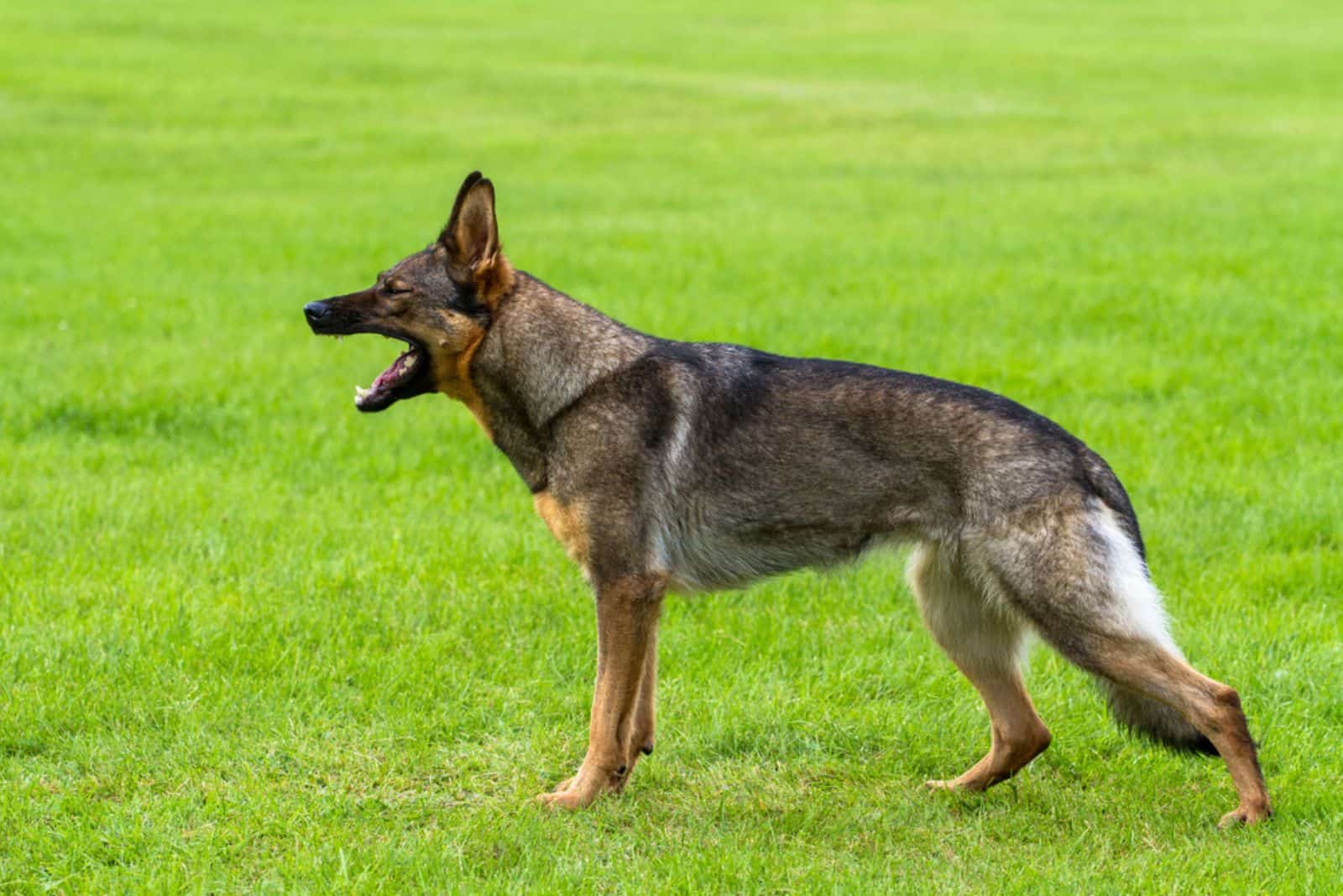
Well, it can be for a variety of different reasons, as stated above.
The number one reason is that he’s trying to protect others, namely his friends and family from anyone he deems dangerous, and well trained dogs can often smell danger on a person.
So, if he starts sensing that on you, it may be a sign that he’s afraid or angry at you for the way you’ve treated him which isn’t something you want happening.
If you’ve mistreated him through disciplinary malpractice, then chances are you’re never rooting this out of him again, or you’re at least going to have an incredibly difficult time doing so.
He can also be confused and may be suffering from sensory overload as another reason for why he may be growling at you, and there’s little you can do there aside from trying to calm him down using your words.
Another, more indirect form of him growling at you could be that he has contracted some health issue that’s causing it and he’s trying to bring attention to it, much like how we grunt if we’re hurt.
It could also be a physical injury too and can be difficult to tell in either case, but can be understood through context via body language.
Another case could simply be that he’s trying to assert his dominance by growling at you, a matter which will be common during his early adulthood, but should iron itself out as you challenge his claim and he learns who the dominant in the household is.
And, finally, one form of growling isn’t all that harmful to begin with, but will be directed at you if you’re playing a game with him that involves some form of physical contest like tug of war.
How Can I Stop This Behavior Then?
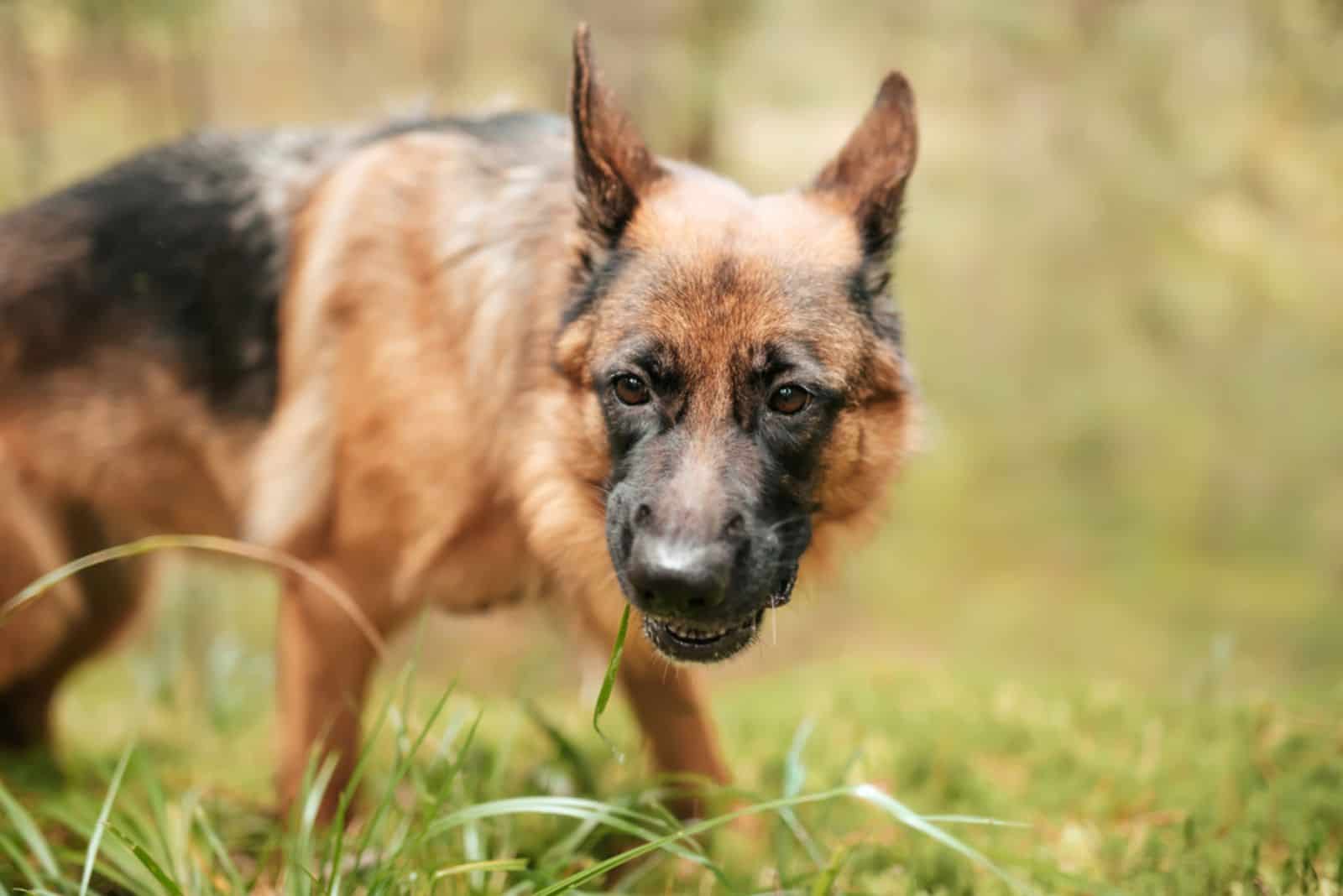
Well, in most cases you won’t really need to, and for the others you have relatively simple solutions.
For instance, when he’s growling while you two are playing, that one shouldn’t be intervened against as that’s just part of play and is healthy for the dog’s confidence.
If the problem is your dog acting overwhelmed or nervous, find the object that’s causing it and remove it from his vicinity, or change the dog’s resting area entirely.
This will help him ease up and is likely to reduce growling if this is the problem.
If the problem is some form of physical injury or health issue, then you have to try and help remedy the problem.
This usually involves taking a trip to the vet to diagnose him to figure out what exactly is the source of the pain causing the growling and treating it as best you can.
The part where he’s trying to assert his dominance will be solved if you train him properly.
Sure, he’ll challenge you a bit during his adolescence due to his built in stubbornness, but things should calm down eventually if you stick to tough love and positive reinforcement as your training tools.
And, for the most severe one of you mistreating him for a long time, there’s rarely going to be a cure for that one.
The best way to get around that is to not let it happen in the first place.
If you’re a first time dog owner or are simply unsure of what to do for GSD training, consult an animal behavior specialist or hire a professional trainer to help you out.
It’s not a sin to ask for help in training a dog and it should be taken whenever necessary.
All other forms of growling and aggressive behavior will be curbed through proper training methods.
Just make sure you’re doing them properly.
In Conclusion
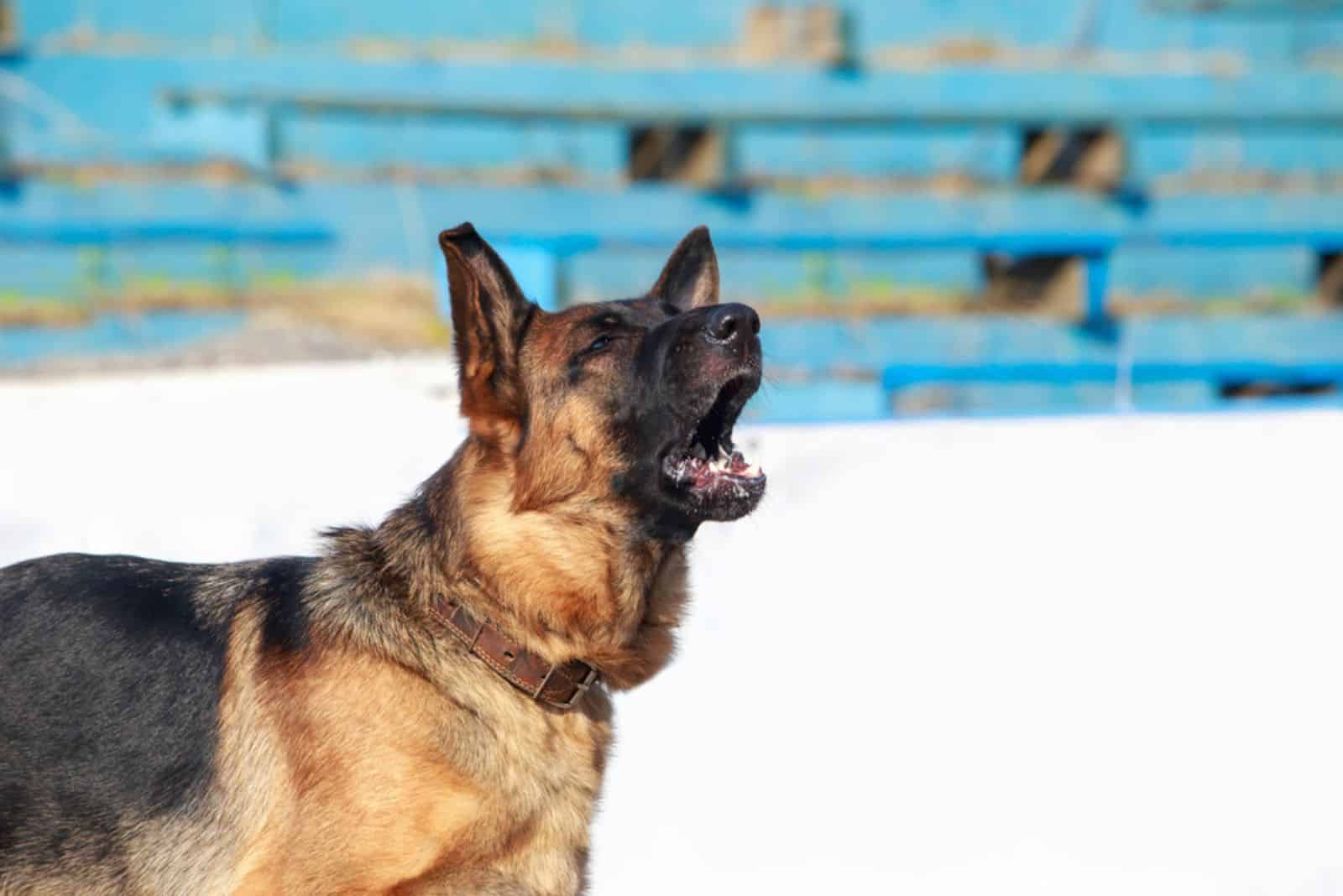
Should you punish your German Shepherd for growling? You should, but only for certain types of growling, and the type of punishment needs to be correct.
You should never take any aggressive measures in doing so as those will only ruin the relationship you’ve built up with your dog, potentially forever.
Instead, taking approaches like tough love and making sure you’re firm and confident in your tone, and not yelling when telling them “No” will do wonders.
The rest will be up to the way you train your dog which is why I often advise going to animal behaviorists for help on the matter if you’re not too confident in your own training capabilities.
There’s no shame in it because the end goal is a positive one.
Hopefully, this will help you get to the bottom of your dog’s growling issues and help nip the problem in the bud where it’s needed. Until next time, pet parents.
RELATED LINKS:
